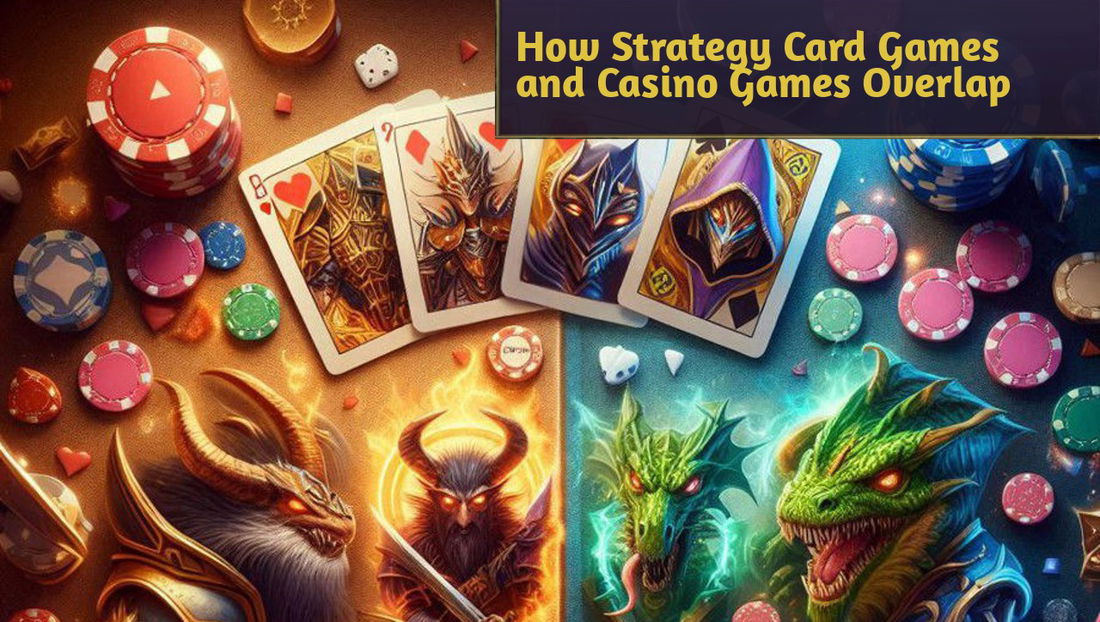Are you interested in learning a new card game? Read more about traditional Arab card games here, or refer to www.emiratescasino.com for trying out some card games yourself.
Tarneeb: A Game of Strategy and Partnership
Tarneeb was born in the Levant. It is a card game that works as a mental battlefield of strategy and unspoken communication. You could say that it's all about the delicate balance between boldness and restraint.
Tarneeb is played with a standard 52-card deck by four players split into two teams. It begins with a bidding war. The players declare the number of tricks their team thinks that it can win. The highest bid determines the trump suit – aptly called the “tarneeb”, Trump holds the power to outshine any other suit. This means that the tide of the game can be turned with a single well-played card.
Each round unfolds unpredictably. The players must read not just the cards but the intentions behind every move. Silent signals, a raised eyebrow, a slight pause – partners rely on these fleeting cues to sync their strategies without saying a word.
Victory in Tarneeb is not just about having strong cards. It's about knowing when to lead, when to follow and how to outplay your opponents. The allure of the game lies in its depth, where luck flirts with skill. Every hand contains risks, possible rewards, and the unbreakable bond between teammates.
Baloot: The Arabian Peninsula's Beloved Trick-Taking Game
Baloot holds a special place in the Arabian Peninsula, especially in Saudi Arabia and Kuwait, where it's actually a cultural institution. This card game is played by four players in fixed partnerships. A 32-card deck is used, formed by stripping away cards below seven.
The game circles around two contracts: "Hokom" and "Sun." In Hokom, one suit reigns as the trump, overpowering all others. Sun, on the other hand, levels the playing field with no trumps. This demands raw tactical precision. The players bid for the right to set the contract. To do this, they rely on sharp instincts and poker faces that could rival the best.
The scoring can be tricky to understand. Points are earned through tricks and special card combinations called “projects.” A well-timed project can flip the game on its head and thereby turn underdogs into champions in a single round.
Baloot's charm lies in its fusion of luck and calculated moves. It's all about reading opponents, anticipating partners' plays and adapting strategies on the fly. Baloot simply sparks laughter, friendly rivalries, and a deep sense of connection.
Trix: A Complex Quartet of Challenges
Trix is a mental marathon wrapped in four kingdoms, each with its own set of rules, risks, and rewards. It's a game popular in Lebanon and Jordan that demands more than just luck. Success requires a sharp strategy, adaptability, and a knack for predicting opponents' moves.
Within each of the four kingdoms lie five distinct sub-games: King of Hearts, Diamonds, Girls, Collections and Trix. King of Hearts penalizes players for capturing the dreaded heart king. In Diamonds, every diamond card adds points to the score – but not the good kind. Girls punish players for taking queens and Collections penalizes players for winning tricks altogether. Trix, the namesake of the game, flips the script entirely, by challenging the players to start forming sequences in descending order.
The real art of Trix lies in timing. The players must decide when to play aggressively, when to hold back and when to sacrifice a round to set up future wins. Every card that is played forms a puzzle piece. It becomes a part of a bigger picture that reveals itself only to those thinking several moves ahead.
Hand: The Middle Eastern Rummy
Hand, or Conquian as it is sometimes called, is often seen as the Middle Eastern cousin of Rummy. It's a fast-paced game where logic dances with luck. The game is played across many Arab countries, at family gatherings and late-night sessions. Competition is fierce but laughter usually flows just as easily.
Hand uses two standard decks that are shuffled together. The players aim to form sets (three or four cards of the same rank) and runs (sequences in the same suit). Each turn starts with drawing a card, either from the deck or the discard pile, followed by discarding one. The goal is simple: arrange all cards into valid combinations and declare "Hand" before anyone else does.
To win this card game you need more than a sharp memory. You must track cards, anticipate opponents' strategies, and decide when to hold back or go all-in. The thrill often lies in the decisions of whether to risk keeping a high-value card or to discard it, knowing it could hand an advantage to someone else.
Hand's charm comes from its blend of skill and chance. It's strategic yet unpredictable and offers enough twists to keep even seasoned players on edge. It's about reading people, bluffing subtly, and savoring small victories with every winning hand.
Basra: A Fishing Expedition with Cards
Basra is a fishing card game played throughout Egypt and Syria by two to four players using a standard 52-card deck. The game revolves around capturing cards from a central pool laid out on the table. The method is simple: match a card in your hand with a card on the table, or combine cards whose combined values equal the card you play.
The ultimate prize in Basra is capturing face cards and specific high-value combinations. The coveted “Basra” move – a sweep of all cards from the table – offers an especially satisfying point boost. Achieving a Basra requires luck but also keen observation and perfect timing. A single misstep can open the door for an opponent to snatch victory.
Basra is engaging because of its balance between simplicity and strategy. While the rules are easy to grasp, tactical decisions are essential. Should you clear the table now or set a trap for an even bigger payoff later? Quick math meets the psychology of outmaneuvering opponents, all under the guise of a casual card game.











— 코멘트 0
, 반응 1
첫 댓글을 남겨보세요